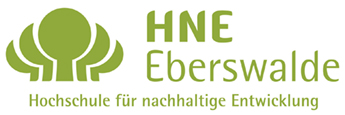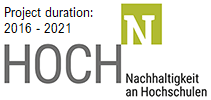Transfer
Higher Education Institutions (HEI) are public institutions and are therefore faced with a growing demand to serve the public good. Contributions to teaching, research and a “third mission” are defined in their policies. Such activities can be called transfer-activities, which means the mutual exchange of knowledge, ideas, services, technologies and experience between HEI and external actors from the economy, politics, public sector, culture, and civil society on a level playing field. Transfer creates additional benefit between the involved partners inside of a society. When it is about transfer from HEI for sustainable development it is necessary to have a clear position for this statement for the actors. The goal of transfer for sustainable development is the sustainable future of a society.
The concept of transfer for sustainable development is not well researched and seldom practiced explicitly. This is why the research team for transfer in the HOCHN project is exploring it with empirical means. They are investigating actors, formats, conditions and obstacles as well as describing good practice examples. This happens with explicit exchange to the research teams of teaching, research and governance within HOCHN.
The results of the research will be validated by experts to derive an analytical framework for transfer in sustainable development. Building on that it will be possible to conduct systematic empirical research and infer recommended actions for HEI.
The head of the HOCHN network in transfer is the Eberswalde University for Sustainable Development (HNEE), with Prof. Dr. Benjamin Nölting.
Contact HNEE:
Prof. Dr. Benjamin Nölting, benjamin.noelting@hnee.de
Nadine Dembski, nadine.dembski@hnee.de
Further members of the team: Prof. Dr. Heike Molitor, Prof. Dr.-Ing. Alexander Pfriem, Prof. Dr. Heike Walk, Prof. Dr. Jens Pape, Kerstin Kräusche, Kerstin Lehmann, Anja Stache, Jana Twarok, Elisa Betker, Manuel Enders
Find further information on the HNEE-website (German):
The transfer-project is funded from 2016 to 2018 by the ministry for research, education and cultre of the Federal State Brandenburg (MWFK), from 01/2019 to 10/2020 by the Federal Minstry of Education and Research (BMBF), Berlin.
 |
 |

